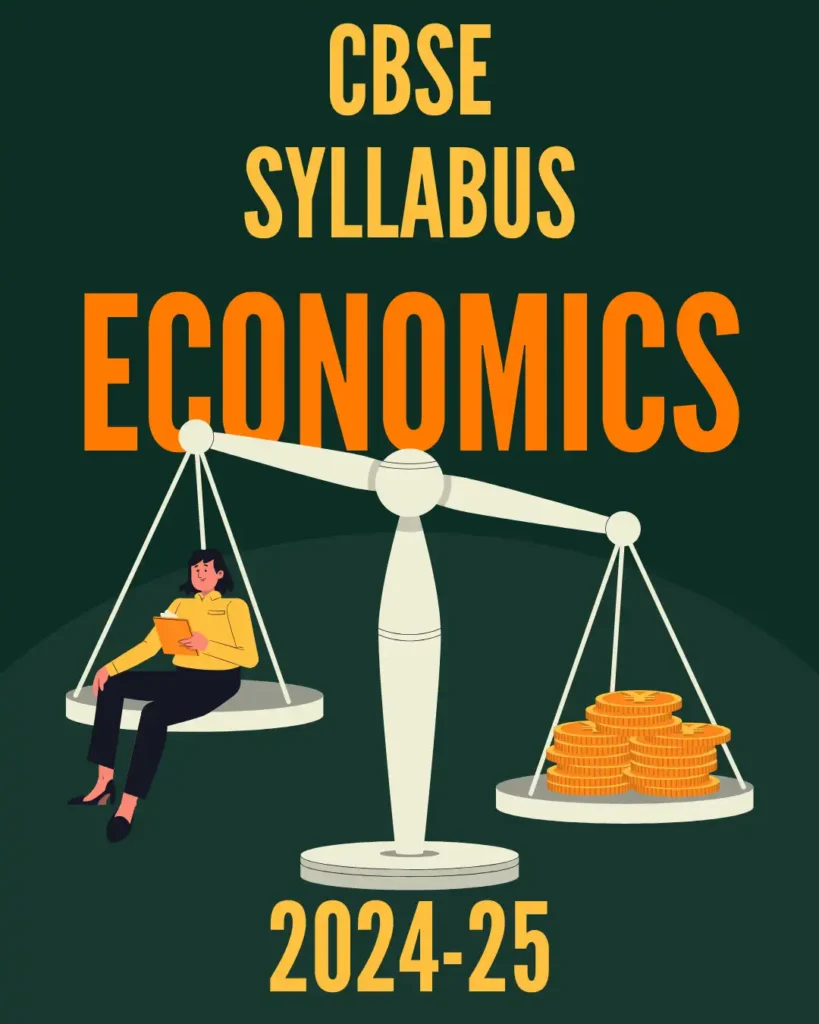CBSE Economics Syllabus 2024-25 for Class 11th: Navigating Economic Principles

Entering Class 11 marks a significant transition in a student’s academic journey, particularly in subjects like Economics. As a foundational discipline, Economics not only provides insights into societal structures and dynamics but also cultivates critical thinking and decision-making skills. In this comprehensive guide, we’ll explore the nuances of the CBSE Economics Syllabus 2024-25 for Class 11th, elucidating its components, objectives, and relevance in shaping students’ understanding of economic phenomena and policies.
Understanding the CBSE Economics Syllabus:
The CBSE Economics Syllabus for Class 11th comprises two primary segments: Microeconomics and Macroeconomics. Microeconomics delves into the behavior of individual economic agents, such as households and firms, and examines how their decisions influence market outcomes. In contrast, Macroeconomics zooms out to analyze aggregate economic indicators, such as national income, inflation, unemployment, and economic growth, providing a broader perspective on economic systems and policies.
Are you looking to excel in Economics?
Join our tuition classes to receive expert guidance and support in mastering economic principles and scoring high marks in your exams.
Explore nowTALK TO US NOWObjectives:
At the core of the CBSE Economics Syllabus lie multifaceted objectives aimed at fostering a holistic understanding of economic principles and their applications. These objectives include:
- Developing analytical and critical thinking skills to evaluate economic issues, policies, and their implications.
- Understanding fundamental economic concepts such as scarcity, opportunity cost, comparative advantage, and market equilibrium.
- Exploring the interplay between individual decision-making and market outcomes in Microeconomics, and analyzing the determinants of aggregate economic performance in Macroeconomics.
- Applying economic theories and models to interpret real-world economic phenomena, make informed decisions, and contribute to informed public discourse.
- Developing an appreciation for the role of economics in addressing global challenges and promoting sustainable development.
Importance of the Subject:
Economics holds immense significance in modern society, serving as a lens through which we examine and understand various aspects of human behavior, resource allocation, and societal welfare. Proficiency in Economics equips students with valuable skills for interpreting economic data, analyzing policy implications, and making informed decisions in personal, professional, and civic contexts. Moreover, an understanding of economic principles empowers individuals to navigate complex economic systems, participate in public discourse, and advocate for socio-economic change effectively.
Study Tips For CBSE Economics Syllabus 2024-25 for Class 11th:
To excel in Economics, students can adopt the following study strategies:
- Understand Core Concepts: Master fundamental economic concepts such as demand and supply, elasticity, production and cost functions, national income accounting, and fiscal policy.
- Practice Numerical Problems: Strengthen quantitative skills by solving numerical problems related to demand and supply analysis, consumer behavior, production theory, macroeconomic indicators, and policy analysis.
- Analyze Current Events: Stay updated with current economic events, policy debates, and global economic trends, and analyze their implications using economic theories and frameworks.
- Use Visual Aids: Utilize diagrams, graphs, and charts to visually represent economic concepts, relationships, and trends, aiding in conceptual understanding and retention.
- Engage in Discussions: Participate in group discussions, debates, and seminars to exchange ideas, share perspectives, and deepen your understanding of economic concepts and issues.
Project Work:
Project-based learning serves as a cornerstone of the CBSE Economics Syllabus, offering students opportunities to apply economic theories and principles to real-world scenarios. Projects may include:
- Market research and analysis
- Case studies on economic policies or events
- Economic impact assessments
- Policy briefs or proposals
- Economic modeling and simulation exercises By engaging in project work, students develop critical thinking, research, data analysis, communication, and presentation skills while gaining a deeper understanding of economic concepts and their practical implications.
Are you looking to excel in Economics?
Join our tuition classes to receive expert guidance and support in mastering economic principles and scoring high marks in your exams.
Explore nowTALK TO US NOWConclusion:
In conclusion, the CBSE Economics Syllabus for Class 11th provides a comprehensive framework for students to explore economic principles, theories, and applications. By mastering Economics, students not only develop analytical and decision-making skills but also gain insights into the complexities of economic systems and their impact on society. Through a combination of theoretical learning, practical applications, and project-based experiences, students are equipped to navigate the dynamic world of economics with confidence, understanding, and a sense of responsibility.


